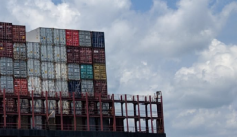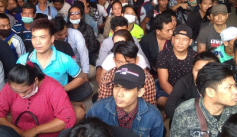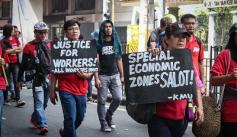Blog
June 29, 2020
Improving Customs and Border Protection (CBP) Communications with Stakeholders Must Be A Two-Way Channel
June 26, 2020
COVID-19 Impact on Migrant Workers in Thailand
March 27, 2020
Honduran Union Leader Threatened with Imprisonment
January 18, 2020
When ‘business as usual’ costs lives: workers in Pakistan call for a binding safety agreement
November 11, 2019
Forced Child Labor in Cocoa; Twenty Years of Failure
July 25, 2019
Our Own Best Defense: How Unions Can Stop GBV at Work
June 14, 2019
A Worker By Any Other Name
June 12, 2019
Pages
Blog archive
- September 2018 (1)
- August 2018 (1)
- July 2018 (1)
- June 2018 (3)
- May 2018 (1)
- January 2018 (2)
- December 2017 (1)
- November 2017 (3)
- October 2017 (2)
- September 2017 (3)
- ‹ previous
- 4 of 16
- next ›






